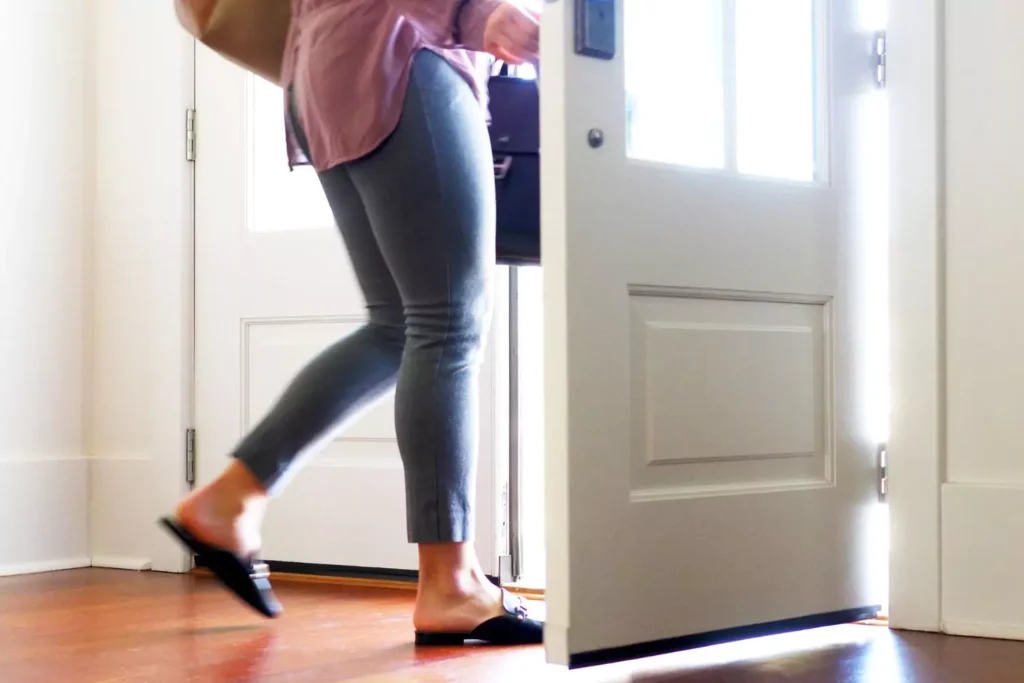Almost 20 years ago, the romantic comedy “Failure to Launch” hit the big screen. The film portrayed a thirty-something bachelor (Matthew McConaughey) still living with his parents, and an expert (Sarah Jessica Parker) paid to get him out of the house. It captured a firmly unflattering stereotype of the time — an adult single man still living with Mom and Dad.
In recent years, that picture is less a stereotype and more a reality. That’s because living at home with your parents later into adulthood — or returning home after a period of independence — is an increasingly viable and even attractive option.
An article addressing parents of the “Boomerang Generation” reports:
The trend of Millennials returning to live with their parents is real. Trulia reports almost 40 percent of young adults lived with their parents or another relative last year. That’s the highest such percentage since the Great Depression. Similarly, the Pew Research Center reports that adults ages 18 to 34 are now more likely to be living with their parents than independently with a spouse or partner. That’s the first time that’s been the case in the modern era, some 130 years.
This means that there is a good chance that you or someone you know lives with a parent. And the trend isn’t likely to die out any time soon. According to the New York Times article “It’s Official: The Boomerang Kids Won’t Leave:”
The common explanation for the shift is that people born in the late 1980s and early 1990s came of age amid several unfortunate and overlapping economic trends. Those who graduated college as the housing market and financial system were imploding faced the highest debt burden of any graduating class in history. Nearly 45 percent of 25-year-olds, for instance, have outstanding loans, with an average debt above $20,000.
The reasons more young adults are living at home are overwhelmingly economic (although emotional support also tops the list). Student debt, unemployment (and underemployment) and a higher cost of living all contribute. As I spoke to millennials in this situation, a common theme arose: They’re not doing it because they want to.
“I wanted to move out,” Tenell says of moving home after grad school at 23, “but I couldn’t afford to. My first job, as a newspaper reporter, didn’t pay well and I couldn’t afford the cost of living on my own.”
Another thirty-something woman living with her mom says, “It’s definitely not the life I envisioned for myself. I’ve had to grieve a lot of the desires and expectations I had.”
A newlywed living with parents adds, “In my experience, millennials don’t stay home because they want to. It’s always because they have no other financial choice.”
Leaving Is Possible
Tim Sanford, a licensed professional counselor with over 25 years of experience, understands the financial pressures facing today’s millennials. But he doesn’t believe that has to stop them from launching. “Moving out on your own is definitely doable,” he says.
He thinks young adults may be held back by an unrealistic view of what living on their own will require. “Today’s young adults are expecting to have the same socioeconomic standard of living when they launch that their parents have right now,” Sanford says. “That would be nice, but it’s not real.”
Though moving out may require financial compromises such as getting roommates or giving up some extras, Sanford believes the tradeoff is worth it. Here are a few things he says you gain from launching:
You learn that hard is good. One benefit of launching is confronting hard things instead of shying away from them. Hard isn’t the enemy. Doing hard things makes you a stronger, tougher, more resilient person.
For years, experts have been telling us that learning new things actually rewires our brains for the better. As you take on challenges, you’re forming brand new synaptic connections. The more connections you have, the better your brain is able to function. The intense learning curve associated with moving out can improve your thinking in all areas.
In addition, moving out on your own often goes hand in hand with a career launch, and going after a job in your career field builds a whole other set of competencies. Because the job market is highly competitive, the sooner you can start learning and developing skills in your job field, the better.
You discover your individuality. When Tenell finally took the plunge to move out after three years of living with her mom, she experienced an unexpected sense of exhilaration. “For the first time, I could act like an adult,” she says. “I learned new things, like the specifics for washing my dishes and doing my laundry. Before, my mom had a strict way she did things. But once on my own, I started discovering personal preferences. It’s a small thing but it made me feel good to discover my way of doing things.”
This ‘individuation’—or uncovering the “real you” apart from your parents—can benefit you in all areas of life. A variety of life experiences and responsibilities help you develop a sense of self. A strong personal identity affects everything from how you engage in romantic relationships, to achieving success in your career.
An added benefit is greater self-confidence. Competence leads to self-confidence. The independence of paying your own bills, organizing your own home and choosing how you spend your free time, transfers your reliance from your parents to yourself, which boosts confidence and enhances a sense of identity.
You gain the reward of your hard work. Sanford lives in Colorado Springs, Colo., near Pike’s Peak. “If you drive with Mom and Dad to the top of Pike’s Peak, you get a great view and you get a donut,” he says. “If you have to hike to the summit yourself, you still get the great view and the donut. But you get something more: a sense of accomplishment. There’s a lot more, ‘Yes!’ and ‘Woo-hoo!'” The experience is more valuable and noteworthy, in part because it was more difficult to achieve.”
The same can be true of launching. As you conquer challenges and feel the pleasure of doing something on your own, you receive a dopamine rush that spurs you on to even greater things.
To Launch or Not to Launch
As we think about this issue, it is helpful to remember that it is largely a cultural one, not a biblical one. In many cultures, the expectation is that children live with their parents until marriage. (If we’re really examining the biblical model, extended families lived together in multi-generational dwellings.) So failing to launch is not a sin. Nor is it a circumstance, or choice, that should bring shame.
The real issue at stake is whether living at home longer is keeping young adults from growing up and developing to their full potential. Living at home and sharing expenses with parents may give millennials the unprecedented luxury of staying in low-paying jobs instead of taking more risks and better opportunities, upping their earning potential and creating a cycle that is difficult to break.
This is why Sanford believes an educated, able-bodied person over 18 should endeavor to become independent rather than live with parents. And if you are living at home, he suggests being as independent as possible by paying your own bills and viewing the situation as temporary.
Ready to Fly
If you’re ready to launch but feel stuck, a few basic steps might help:
Make a deadline. Start by giving yourself a realistic deadline for launching several weeks or months in advance of making the move. Tell someone of your decision and ask them to hold you accountable.
Create a budget. Establish a budget for living on your own. Get creative in considering ways to cut expenses, such as getting roommates or renting a small apartment or a room in someone’s home.
Make employment adjustments. Once you have established a baseline of what launching will cost, decide if your current employment will meet your income requirement. If not, it may be time to find a job that pays more or request to work more hours.
Tenell, now 28 and a communications director for a non-profit, says she’s glad she made the leap, even though she had to make some financial sacrifices such as eating out less and getting deals at the grocery store.
“If you can do it, do it!” she advises. “It was amazing to see how God provided once I decided to start looking for an affordable place to live and for roommates (my church is pretty large and there was a great unofficial system in place for finding roommates). Finances were still an issue, but God faithfully provided for me each and every month to make ends meet.”
If you’re feeling that urge to leave the nest, you can do it. You never know how much you’ll gain from launching until you try.
Copyright 2017 Suzanne Hadley Gosselin. All rights reserved.











